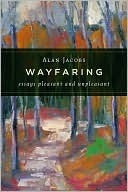More on this book
Kindle Notes & Highlights
a humble mutability of tone, a willingness to acknowledge and accept the vagaries of the mind, with its habit of following its own pathways in serene disregard of what we would have it do.
Robert Alter is a masterful scholar and a critic of exemplary sensitivity and tact who, both as translator and as commentator, has placed himself wholly in the service of the artfulness of the Torah. It is because he has been so attentive in his commenting that he can afford to be so daring in his translation, so immune to the "heresy of explanation," so faithful to the literary details of the text that other translators either see as impediments or do not see at all. Conversely, it is his adherence to this specifically literary model of fidelity in representation that leads him into
...more
But this would be pointless, because it is not the purpose of cathedrals simply to make people feel small (there is no virtue in feeling small) but rather to help people understand that they are located within the vast orderly architecture of creation. We are indeed small, but a small part of something glorious, in which we can participate, find our place, find our purpose. Cathedrals are celebrations of all that God has made, and they embody in their stone and glass the history of God's dealings with his world and people made in his image. If we want merely to feel small, it is enough -
...more
I am inclined to reconsider something I said at the outset of this essay. Maybe it's not "a belief in the power of brevity" prompting these signs. Maybe it's a panicky recognition that sometimes brevity is all you get: Tell us the meaning of life in no more than ten words. If brevity is the soul of wit, perhaps desperation is the soul of brevity.
The problem with jeremiads is that they only convince people already in the Jeremiah frame of mind; everybody else is likely to say, "Whoa, it's not that bad, is it?"
But the most desirable goods, like the most deadly illusions, rarely yield to direct assault. Wise men and gurus, saints and cranks alike testify that happiness cannot be sought but can only be found in the pursuit of something else. C. S. Lewis wasted years of his life seeking the peculiar stab of longing he called Joy - only to discover in the end that, like a stray cat, it declined to come when called, but appeared when it was least looked for.
We must ask ourselves whether we have, indeed, taken "worldly prudence" for good stewardship, and Christian generosity for recklessness. And we must remind ourselves that we can insulate ourselves from surprising uncertainties or setbacks only by the kind of false prudence that insulates us also from surprising blessings.


